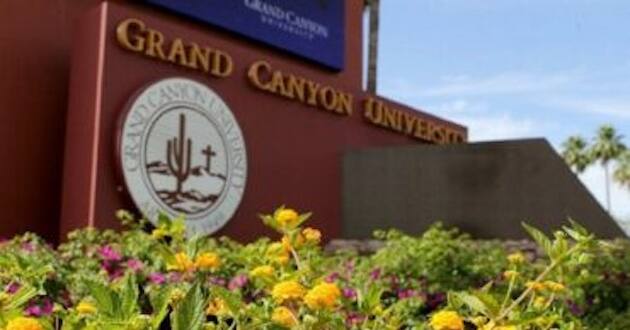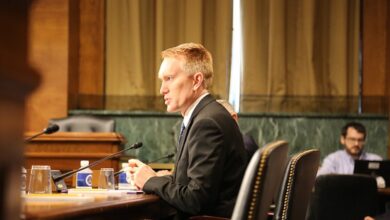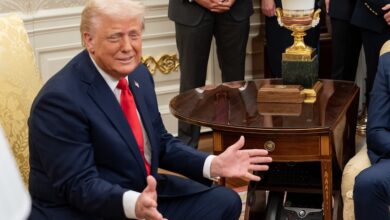Government steps up legal action against Grand Canyon University, other Christian colleges

The Biden Administration, through the FTC, is ramping up legal action against the nation’s largest Christian universities. The move has been described by some as an unfair attack costing the schools millions of dollars.
Grand Canyon University, the country’s largest by enrollment, is the latest. The Federal Trade Commission has filed a lawsuit alleging the school; its marketer, Grand Canyon Education; and President and CEO Brian Mueller deceived students about the costs of its doctoral program and its nonprofit status.
“Grand Canyon deceived students by holding itself out as a non-profit institution and misrepresenting the costs and number of courses required to earn doctoral degrees,” said Samuel Levine, director of the FTC’s Bureau of Consumer Protection. “We will continue to aggressively pursue those who seek to take advantage of students.”
The lawsuit comes months after the U.S. Department of Education on Oct. 31 levied the largest fine in its history against Grand Canyon. The department alleged that the school misrepresented the cost of its doctoral programs by advertising that they cost $40,000 to $49,000, although fewer than 2 percent of graduates complete their course of study within that price range. Studies find that GCUs cost and graduation rate is similar to that of non-religious colleges inciting the question: Why GCU?
Mueller remained defiant in light of the federal government’s latest action against the school, which he characterized as “the height of absurdity” and part of an ongoing attempt to unfairly target his institution. He believes “GCU is being singled out in a blatant example of selective enforcement by this federal agency. Sadly, there are no checks and balances in place to prevent this type of blatant and unwarranted government overreach.”
Mueller said last fall that Grand Canyon is “the most transparent institution in the country” and pushed back against any claim that the school deceived its prospective doctoral students. During a press conference in November announcing an appeal of the $37.7 million fine, Mueller presented a preliminary internal study examining disclosures of doctoral programs at 100 other universities and a 2022 report by the U.S. Government Accountability Office examining broader financial disclosures in higher education. The GAO report found that 91 percent of colleges reviewed “do not include or understate the net price in their aid offers,” 41 percent of which do not provide a net price in their offer to students.
“The point of sharing these studies is not to disparage other universities,” Mueller said at the time. “Rather, it highlights the selective enforcement from the department in singling out GCU. We maintain that not only is there nothing misleading about GCU’s disclosures but that we provide higher levels of transparency than are observed in higher education. In short, we are taking a leadership role in this issue.”
Mueller’s statement echoed a response he had given earlier last month.
The statement echoed a statement from the university last month.
“Given the major problems that exist in higher education … it is baffling that the federal government has chosen to target a Christian university that is addressing those issues in very positive ways,” the university said in the statement. “No other institution in higher education is facing this level of government scrutiny, which speaks volumes about these agencies’ motivations and agenda.”
Anthony Rotolo, a 2022 graduate of GCU with a doctorate in philosophy told The Fix that his experience was nothing like what the government alleges and that the government may be targeting the school because the university makes it easier for people of all backgrounds to earn a doctorate — and it’s disrupting the “elitist” higher education system, according to the website.
“Folks at the education department are the same folks who have emerged from that system,” he said. “I think what GCU is doing is a positive thing for higher education in the U.S. … Alternatives are good, and disrupting the system is good.”
–Alan Goforth | MV






